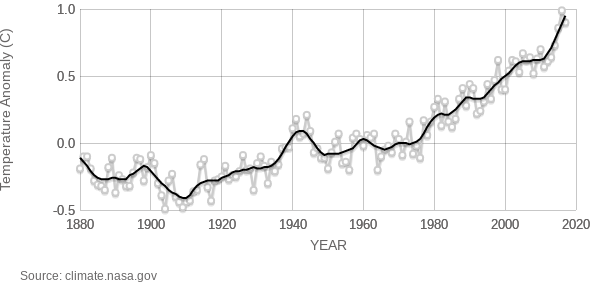Michael Jackson’s 1995 hit, Earth Song—with its over-the-top, Grammy nominated music video—is a series of questions. “what about sunrise? What about rain? What about all the things that you said we were to gain? … Did you ever stop to notice all the blood we’ve shed before? Did you ever stop to notice this crying earth, these weeping shores? … What have we done to the world?”
Twenty-seven years later these, and similar questions, are still central to what it means to be human; and what it is to do philosophy. Philosophy is, loosely speaking, most truthfully defined as the love of wisdom. A lover of music is called an amateur, originating in the Latin word amator, lover. Even amateur musicians, maybe especially so, recognize the love of music and the love of Mother Earth are connected. We walk in the woods and we hear the beautiful sounds of winds, and birds, and bugs. We search YouTube for the latest musics by global superstars and unknown independents alike. Beauty--loveliness—follows the musician, and the musician is distinctive as being the type of person who stops and listens, and then joins in with the great earth song in their own improvisational ways.
Tara Lohan shares the work of Kathleen Dean Moore in The Revelator. She writes, “What does a biodiversity crisis sound like? You may need to strain your ears to hear it.” That’s because the soundscape today is degraded through species loss. A third of bird species have become extinct and 60% of mammals. Also check out the book, Earth’s Wild Music: Celebrating and Defending the Songs of the Natural World. We don't annihilate something or someone we truly love. We resist capitalism's expansive destruction, when that destruction includes that which we love.
What of music education philosophy? What of all music educators, considering what music education ought to be? What kind of field would ignore the questions Michael Jackson, Kathleen Dean Moore, and others have posed to humanity in a time of such devastating musical loss? On a positive note, it seems music educators are beginning to awaken to our responsibilities. My work for the past six years, as well as the work of others in music education and ecomusicology, may be partly responsible for that awakening. Check out the tab on eco-literate.com on Relevant Music Education Articles, which I know I need to update.
Or perhaps people are awakening because of the Covid pandemic, beginning with habitat loss, expanding suburbia around the globe, and humans and non-human species coming into ever closer, unusual proximity. The UN Environmental Chief says Covid is “nature sending us a message.” Or perhaps it’s because of NASA’s continuing work showing the public the evidence that climate change is real and anthropogenic. Whatever the reason, this ecological awakening is good. Let's deepen it. Let's ask questions about climate change, waste, water pollution, and other ecological challenges in our classrooms. This is at the heart of philosophy, music education philosophy or other. Questions. Let’s ask them, insistently.
DS
Link to NASA Chart: https://upload.wikimedia.org/wikipedia/commons/1/1d/Scientific_consensus_-_Earth%27s_climate_is_warming_%28Temperature_Anomaly_CO2%29.png

 RSS Feed
RSS Feed
